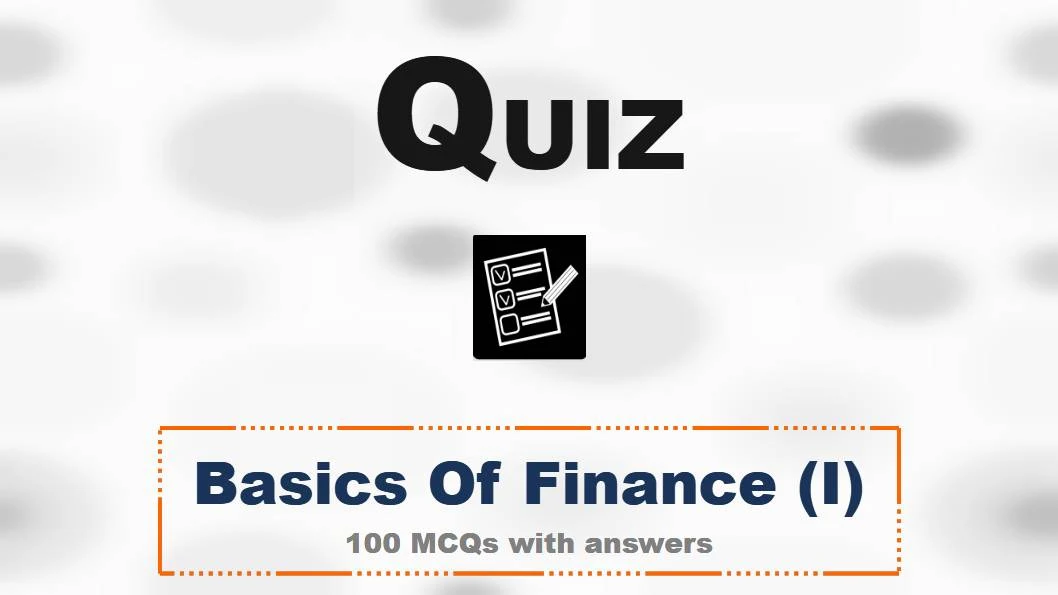- The safest place for keeping money
Money lender
An iron box
Bank
- Gold and silver ornaments should be kept in bank lockers
It is safe
No risk of theft
Both
- ATM can be used for
Cash withdrawal
Statement of account
Both
- Bank provides loans for
Home
Education
All of above
- General Insurance relates to insurance against
Fire
Burglary
Both
- KYC means
Know your character
Know your customer
Both
- Loans from money lenders are
With High rate of interest
No transparency
All of above
- ATM password to be shared only with
Spouse
Obedient daughter
None
- Life insurance means
Insurance of human
Insurance of Life of Machines
Insurance of life of human and Cattle
- We should keep our savings with banks because
It is safe
Can be withdrawn anytime
Both
- Internet Banking Refers To
Opening of account through ATM
Operation of account through internet
Both
- RTGS Stands For
Real Time Gross Settlemen
Ready Time Gross Settlement
Ready Time Grocery Settlement
- Can Illiterate Person Be Issued Debit Card?
No
Yes
Only in case of joint account
- NEFT Stands For
National Electronic Fund Transfer
National Electric Fund Transfer
National Electrical Fund Transfer
- Education Loans
Cover tuition fee & expenses
Are repayable after completion of course
Both
- What is the federal funds rate?
The interest rate paid by banks on deposits held by the Federal Reserve.
The interest rate charged by the Federal Reserve to member banks.
The interest rate at which banks lend and borrow overnight funds from each other.
- What is the prime rate?
The interest rate at which the Federal Reserve lends to member banks.
The interest rate charged by banks to their most creditworthy customers.
The interest rate paid by banks on deposits from their customers.
- What is an interest rate?
The percentage at which an amount of money is borrowed or invested.
The cost of goods and services.
The amount of taxes paid to the government.
- What is a treasury bill?
A long-term debt security issued by the US government.
A short-term debt security issued by the US government.
A stock issued by the US government.
- What is a certificate of deposit (CD)?
A bond issued by the US government.
A share of ownership in a company.
A time deposit offered by banks and other financial institutions.
- What is a money market account?
An interest-bearing account offered by banks and other financial institutions.
A short-term debt security issued by the US government.
A share of ownership in a company.
- What is the discount rate?
The interest rate charged by banks to their most creditworthy customers.
The interest rate at which the Federal Reserve lends to member banks.
The interest rate paid by banks on deposits from their customers.
- What is a fixed interest rate?
An interest rate that fluctuates based on market conditions.
An interest rate that remains constant for the life of a loan or investment.
An interest rate that is set by the borrower or investor.
- What is a variable interest rate?
An interest rate that fluctuates based on market conditions.
An interest rate that remains constant for the life of a loan or investment.
An interest rate that is set by the borrower or investor.
- What is inflation?
A general decrease in prices and increase in the value of money.
A measure of the creditworthiness of a borrower or issuer.
A general increase in prices and decrease in the value of money.
- What is deflation?
A general increase in prices and decrease in the value of money.
A general decrease in prices and increase in the value of money.
A measure of the risk associated with a particular investment.
- Which type of interest is calculated only on the principal amount?
Simple interest
Compound interest
Annual interest
- What is a bond?
A share of ownership in a company.
A certificate of deposit issued by a bank.
A loan made to a company or government.
- What is a yield curve?
A graph that shows the relationship between interest rates and the time to maturity for a set of bonds.
A measure of the creditworthiness of a borrower or issuer.
A measure of the risk associated with a particular investment.
- What is a credit score?
A measure of the creditworthiness of a borrower.
A measure of the risk associated with a particular investment.
A measure of the performance of a particular company or investment.
- PAN Means
Permanent Account Number
Primary Account Number
None
- Education Loans
Cover tuition fee & expenses
Are repayable after completion of course
Both
- Can Illiterate Person Be Issued Debit Card?
Yes
No
Only in case of joint account
- NEFT Stands For
National Electrical Fund Transfer
National Electronic Fund Transfer
None
- RTGS Stands For
Ready Time Gross Settlement
Ready Time Grocery Settlement
Real Time Gross Settlement
- KYC Means
Know your character
Know your customer
Both
- What Is RuPay Debit Card?
Introduced by National Payments Corporation of India
Accepted at all ATMs & PoS machines
All of above
- ATM Password To Be Shared Only With
Obedient son
Spouse
None of above
- Internet Banking Refers To
Opening of account through ATM
Operation of account through internet
Both
- In Recurring Deposits,
interest is paid at FDR rate
a fixed sum is deposited every month
Both
- What is a budget?
A spending plan showing sources and uses of income.
A limit on spending that cannot be exceeded.
The amount of money that a credit card will let you charge without penalties.
- Your bank just notified you that your 12-month Certificate of Deposit (CD) is maturing. What factors are important to consider before you decide to let it automatically renew?
There is a good chance you might need the funds in a shorter time frame.
Interest rates have gone up since you opened the CD.
Both
- Which of the following would hurt your credit score?
Paying off student loan debt.
Closing a long-held credit card account.
Getting married.
- Which savings strategy will get you to $1 million in the bank by age 65, assuming 8% annualized returns?
Save $200 a month, starting at age 20
Save $400 a month, starting at age 30
Save $800 a month, starting at age 40
- Which of the following would be expected to hold its value best during a time of inflation?
A corporate bond.
A house.
A certificate of deposit.
- What is the purpose of financial statements?
To provide an overview of a company's financial position
To track employee performance
To forecast future market trends
- What is the difference between a bond and a stock?
A bond represents a debt obligation, while a stock represents ownership in a company
A bond pays interest to the investor, while a stock pays dividends
A bond represents ownership in a company, while a stock represents a debt obligation
- What is the time value of money?
The concept that a dollar today is worth less than a dollar in the future.
The concept that a dollar today is equal to a dollar in the future.
The concept that a dollar today is worth more than a dollar in the future.
- What is diversification?
The process of investing in a single stock
The process of investing in a single asset class
The process of investing in multiple asset classes to reduce risk
- What is the difference between a mutual fund and an exchange-traded fund (ETF)?
Mutual funds are more tax-efficient than ETFs
Mutual funds are actively managed, while ETFs are passively managed
Mutual funds are traded on stock exchanges, while ETFs are traded over-the-counter
- What is the difference between a traditional IRA and a Roth IRA?
Distributions from a Roth IRA are tax-free, while distributions from a traditional IRA are not
Contributions to a Roth IRA are tax-deductible, while contributions to a traditional IRA are not
Distributions from a traditional IRA are tax-free, while distributions from a Roth IRA are not
- What is the difference between a credit score and a credit report?
A credit score is a detailed history of a person's credit usage, while a credit report is a numerical value
A credit score is a numerical value, while a credit report is a detailed history of a person's credit usage
A credit score and a credit report are the same thing
- What is a balance sheet?
A document that shows a company's revenues and expenses over a specific period of time
A document that shows a company's cash inflows and outflows over a specific period of time
A document that shows a company's assets, liabilities, and equity at a specific point in time
- What is the process of budgeting?
Allocating income and expenses
Allocating income only
Allocating expenses only
- What is the time value of money?
The idea that money loses value over time
The idea that money gains value over time
The idea that money has the same value over time
- What is diversification?
Investing in multiple assets to reduce risk
Investing in a single asset to reduce risk
Investing in multiple assets to increase risk
- What is liquidity?
The ability to borrow money easily
The ability to earn a high return on investment
The ability to convert an asset into cash quickly
- What is the difference between stocks and bonds?
Stocks represent a loan to a company, while bonds represent ownership in a company
Stocks represent ownership in a company, while bonds represent a loan to a company
Stocks and bonds represent ownership in a company
- What is an ETF?
A type of investment fund that trades on stock exchanges
A type of stock
A type of bond
- What is the difference between a traditional IRA and a Roth IRA?
Withdrawals from a traditional IRA are tax-free, while withdrawals from a Roth IRA are not
Contributions to a traditional IRA are tax-deductible, while contributions to a Roth IRA are not
Contributions to a Roth IRA are tax-deductible, while contributions to a traditional IRA
- What is a mutual fund?
A type of bond
A type of stock
A type of investment fund that pools money from multiple investors to purchase securities
- What is the difference between a bull market and a bear market?
A bull market is characterized by falling stock prices, while a bear market is characterized by rising stock prices
A bull market is characterized by stable stock prices, while a bear market is characterized by volatile stock prices
A bull market is characterized by rising stock prices, while a bear market is characterized by falling stock prices
- What is the purpose of financial planning?
To identify financial goals and develop a plan to achieve them
To make money quickly
To invest in high-risk assets
- What is the purpose of asset allocation?
To invest in a single type of asset
To diversify investments across different types of assets
To invest in high-risk assets
- What is a budget deficit?
When government spending exceeds government revenue
When government revenue exceeds government spending
When a person spends more than they earn
- What is the difference between a savings account and a checking account?
A checking account typically earns interest, while a savings account typically does not.
A savings account typically earns interest, while a checking account typically does not.
A savings account and a checking account are the same thing.
- What is the difference between a limit order and a market order?
A limit order specifies a maximum price to buy or a minimum price to sell, while a market order executes at the current market price.
A market order specifies a maximum price to buy or a minimum price to sell, while a limit order executes at the current market price.
A limit order and a market order are the same thing.
- What is a stock split?
When a company issues new shares of stock to existing shareholders
When a company reduces the number of shares outstanding
When a company combines multiple shares into a single share
- What is a bond?
A type of equity security that represents ownership in a company
A type of insurance policy
A type of debt security that represents a loan to a company or government
- What is an annuity?
A type of stock
A financial product that provides regular payments for a specified period or for life
A type of bond
- What is a 401(k) plan?
A type of insurance plan
A type of retirement savings plan offered by employers
A type of savings account
- What is the difference between a credit score and a credit report?
A credit score is a number that represents a person's creditworthiness, while a credit report is a detailed summary of a person's credit history.
A credit report is a number that represents a person's creditworthiness, while a credit score is a detailed summary of a person's credit history.
A credit score and a credit report are the same thing.
- Which of the following is not a type of financial statement?
Income statement
Balance sheet
Profit and loss statement
- What is the difference between revenue and profit?
Revenue is the money left after expenses are deducted, while profit is the total amount of money earned.
Revenue is the total amount of money earned, while profit is the money left after expenses are deducted.
Revenue is the total amount of money earned, while profit is the amount of money earned from selling goods.
- What is the purpose of financial ratio analysis?
To determine a company's financial health and performance
To compare financial data from different companies
To compare financial data from different time periods
- What is the term for a type of investment that involves purchasing ownership in a company?
Stock
Bond
Certificate of deposit
- What is the term for the amount of money that a borrower pays a lender for the use of borrowed funds?
Yield
Interest
Principal
- What is the term for the process of creating a budget and managing one's money to achieve financial goals?
Finance
Personal finance
Accounting
- What is the term for the percentage of an investment that is paid out in the form of interest or dividends?
Yield
Coupon rate
Capital gain
- What is the term for the measure of how much an asset's price changes in response to changes in interest rates?
Convexity
Yield to maturity
Duration
- What is the term for the price at which an investor can sell an underlying asset in a financial derivative contract?
Strike price
Spot price
Market price
- What is the term for a type of investment that pools money from multiple investors and uses it to purchase a diversified portfolio of assets?
Exchange-traded fund
Mutual fund
Real estate investment trust
- What is the term for the total amount of money that a borrower owes on a loan, including both the principal amount and interest?
Principal
Loan balance
Interest rate
- What is the term for the practice of spreading investments across different asset classes to reduce risk?
Concentration
Speculation
Diversification
- What is the term for the measure of how much an asset's price changes in response to changes in the overall market?
Beta
Alpha
Standard deviation
- We should keep our savings with banks because
Can be withdrawn anytime
It is safe
Both
- What is the term for a type of investment that provides a fixed rate of return for a fixed period of time?
Stock
Bond
Mutual fund
- What is the term for the amount of money that an investor puts into an investment?
Principal
Return on investment
Interest
- What is the term for the amount of money that a borrower must pay back to a lender over time, usually in equal installments?
Interest
Principal
Amortization
- What is the term for the measure of how quickly an asset can be converted into cash without affecting its market price?
Solvency
Liquidity
Profitability
- What is the formula for calculating simple interest?
P × r × t
P × r × n
P × (1 + r)t
- What is the formula for calculating compound interest?
P × (1 + r)t
P × r × t
P × r × n
- What is the term for the amount of money borrowed or invested, also known as the principal?
Rate
Interest
Principal
- What is the term for the rate at which interest is charged or earned?
Interest
Rate
Time
- What is the term for the length of time for which interest is calculated?
Time
Rate
Interest
- A sum of $5,000 is invested at a rate of 6% per annum for 2 years. What is the simple interest earned?
$500
$400
$600
- A sum of $10,000 is invested at a rate of 8% per annum compounded annually for 3 years. What is the compound interest earned?
$2,208
$2,944
$1,800
- Which type of interest pays interest on both the principal and any accumulated interest?
Compound interest
Simple interest
Annual interest
- A sum of $2,500 is invested at a rate of 4% per annum compounded quarterly for 2 years. What is the compound interest earned?
$220.20
$214.32
$208.50
- Which type of interest is calculated only on the principal amount?
Compound interest
Simple interest
Annual interest







